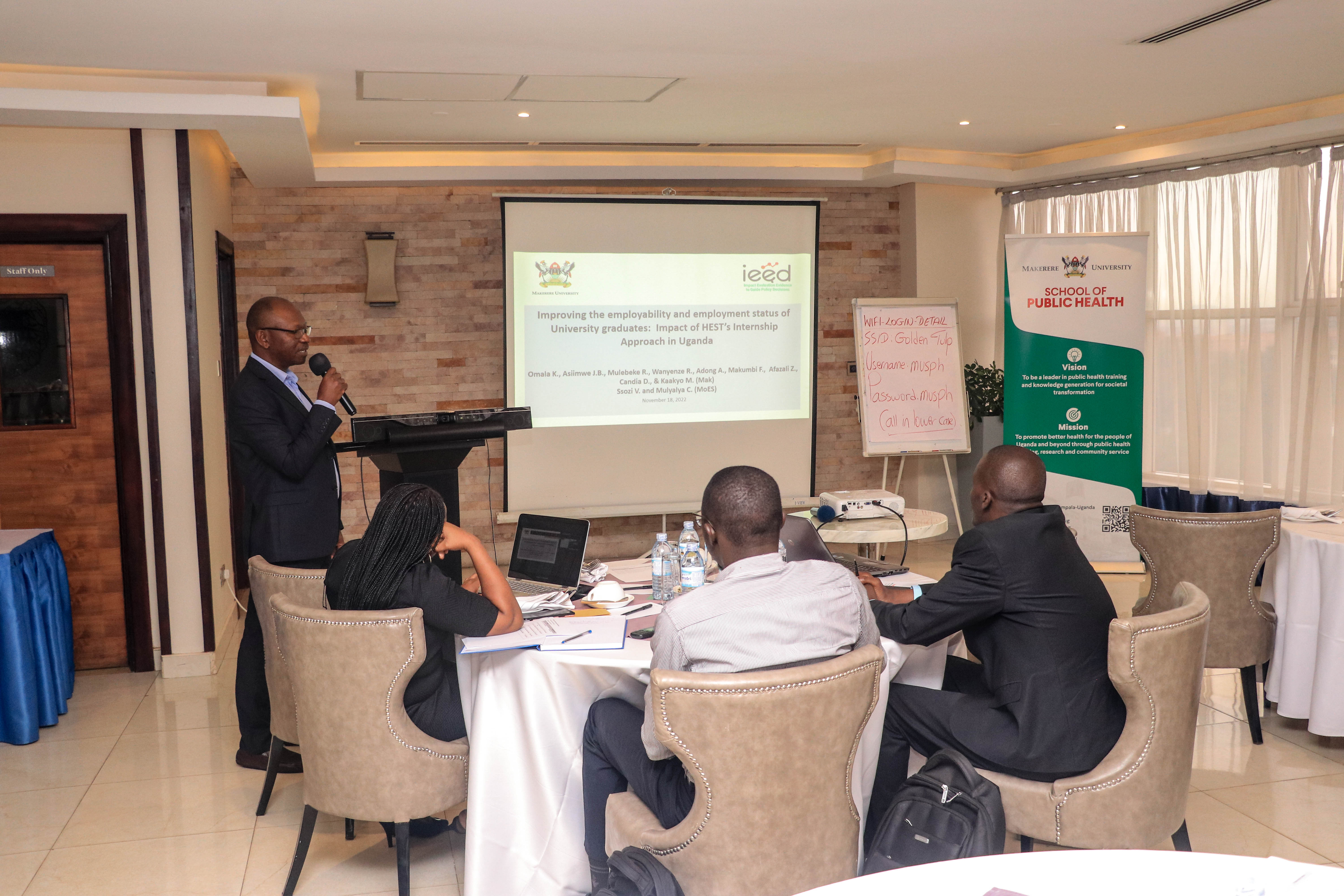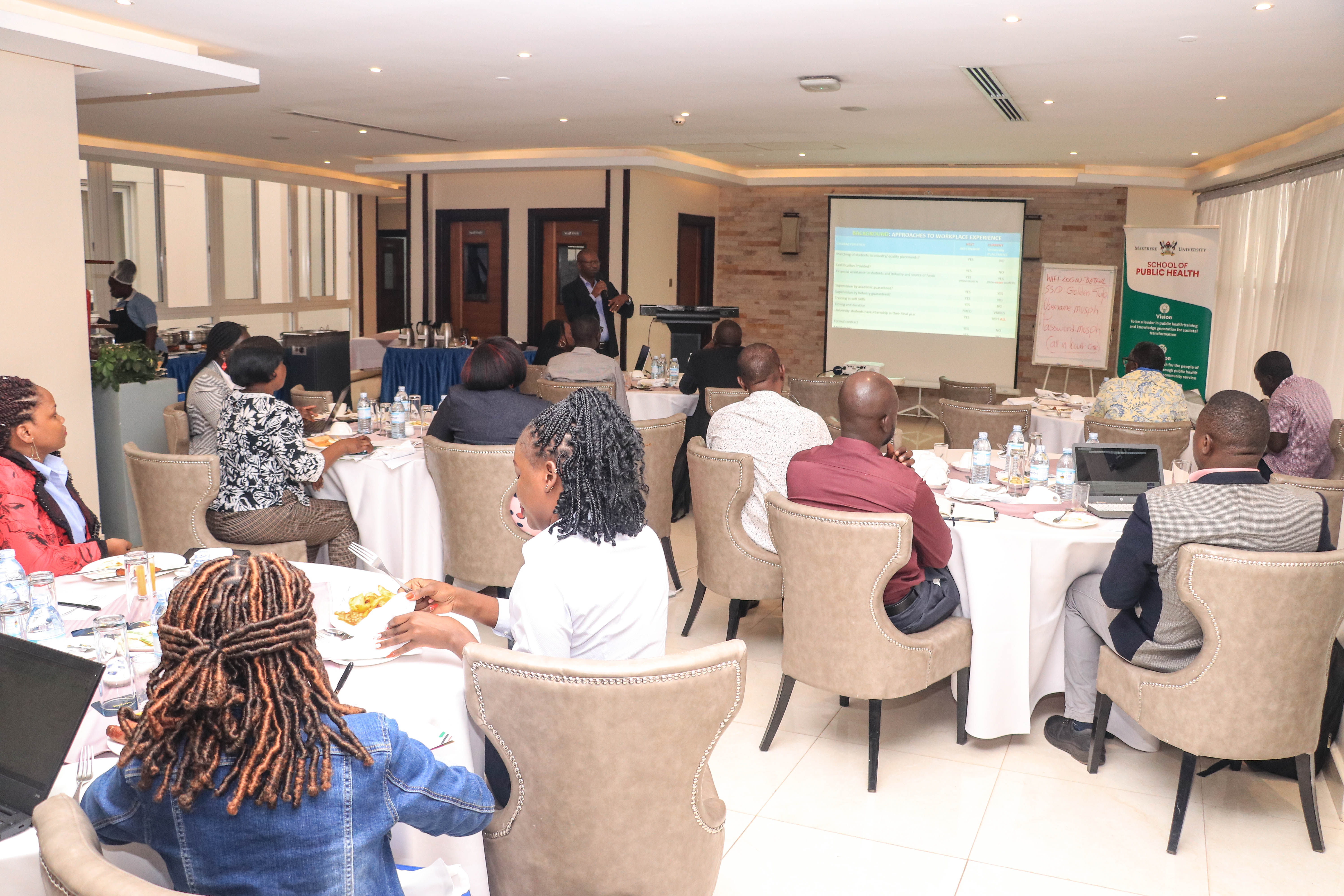
Makerere University through the Impact Evaluation Evidence to guide policy Decisions (IEED) will conduct a study titled: “Improving the employability and employment status of University graduates: Impact of HEST’s Internship Approach in Uganda.”
Under this program, 1,000 students selected from three (03) public Universities (Makerere University (Mak), Kyambogo University (KYU) and Makerere University Business School (MUBS) will be selected with the view of improving their skills. The students will be placed into selected partner industries for skills gain, facilitating the process and supervising placed interns.
IEED is 30 months project of Makerere University’s School of Public Health (MakSPH) and School of Statistics and Planning (MakSSP) – collaborating with the Center for Effective Global Action (CEGA), International Initiative for Impact Evaluation (3ie) and funded by the Hewlett Foundation
Graduates offering these courses will be placed in their areas of study accordingly. Half of the students, will be under intervention arm (under Higher Education, Science and Technology (HEST) internship program) while another 500 will be under control arm (under their current placement).
The study seeks to establish whether the HEST internship approach increase the labour-market outcomes (employment, workplace & life-based skills, duration of employment) of university graduates.
Additionally, the study also seeks to establish other factors including gender, family or employer characteristics, degree program etc explains differences in labour-market outcomes.

Dr. Kizito Omala, a Co-Principal Investigator for the IEED project and lecturer of probability, statistical inference, and statistical quality modelling at the School of Statistics and Planning at Makerere University observes that unemployment of graduates is a key challenge in many developing countries.
Between 2015 and 2019, the Uganda Manufacturers Association (UMA) and the Ministry of Education and Sports implemented a support to “Higher Education, Science and Technology (HEST) project” with funding from African Development Bank. At the time, the goal was to improve the skills of 2,000 interns from 9 benefiting institutions.

The project among other objectives sought to increase the capacity of UMA to manage internship programs, promote the HEST Project among UMA members and other private sector companies, improve skills of Science and Technology students from the 8 benefiting institutions and reduce the cost on expatriate labour in industries.
This followed a 2015 HEST tracer study that recorded very high unemployment rates of over 32 percent Uganda graduates while the Uganda Bureau of Statistics (UBOS) report of 2020 indicates that 58% of youth in Uganda (18-30 years) are unemployed.
“These high rates emanate from demand and supply factors. Supply factors include the lack of relevant skills, ill-equipped students transitioning into the world of work, stemming from education quality and relevance issues while demand factors include space, credit and time constraints that prevent firms from hiring, training and matching [interns] workers,” says Dr. Kizito.
A tracer study reported 77% (1426 of 1857) were in gainful employment, though with attribution challenge. The study recommended a scale-up of this approach to final year in contrast to the current form as well as policy engagement with Office of the Prime Minister and Ministry of Education and Sports, prioritized evaluation of HEST
The tracer study data however did not provide for a comparison group; contact information of [potential] beneficiaries. The investigating team at Makerere University thinks it’s worthwhile to ascertain the attribution of a structured HEST internship approach on labour-market outcomes of university graduates.
The investigators are Dr. Omala Kizito and Dr. Asiimwe John Bosco, Dr. Annet Adong, from the School of Statistics and Planning and Ronald Mulebeke, Professor Rhoda Wanyenze, Professor Fredrick Makumbi, Mary Kaakyo, from the School of Public Health and Vincent Ssozi, Assistant Commissioner Statistics, Monitoring and Evaluation · Ministry of Education and Sports and Carthbert Mulyalya, from Education Policy and Planning Department in the Ministry of Education and Sports.

| Attachment | Size |
|---|---|
| HEST Internship Programme Advert (139.63 KB) | 139.63 KB |

